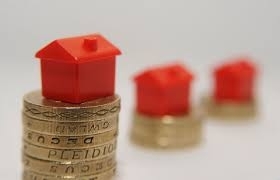News

New tax change could see rents rising by 20% to 30%
Wednesday 22nd February 2017
Tenants in the UK private rented sector could face potential rent increases of up to 30% as a result of the new tax changes being introduced in April, according to a new analysis report.
The tax changes including the additional 3% stamp duty payable on buy-to-let properties and the rate at which mortgage interest can be offset against tax on rental income will be reduced from April, are having a negative impact on the supply of rental properties.
David Miles, of financial economics at Imperial College says "If these changes were a move towards a more neutral (non-distortionary) system of taxation of rented property, relative to owner occupied property, they would have a rationale. But rather than being a move towards neutrality, as was claimed, they in fact represent a further penalty against private provision of rented properties by potential suppliers who cannot, or chose not to, invest via a corporate entity".
He argues that rents will need to rise between 20% and 30% to offset the impact of the governments tax rises and added that the tax changes are unlikely to make it easier for first time buyers to enter the market.
He has made a number of calculations that generate a required initial yield of 4.9%. If the only tax change is to reduce the rate at which interest is deducted against tax to basic rate, the yield would jump to 5.83%. To offset that, rent would need to be increased by about 20%. If the additional 3% on stamp duty is added to the equation, then the required yield would need to be 6.1% which would require a rise of 25% in rents.
"The effects of the tax changes are clearly large. Generally rents would need to rise between 20% and 30% to offset them, more often than not rents need to rise by closer to 30%. The impact of the reduced tax deductibility of interest payments, which affects cash flows every year, is substantially larger than the impact of higher stamp duty, which affects cash flows at only purchase and is spread over the length of the landlord's investment" Miles explained.
"Of course not all rents would go up this much. Some buy to let properties are bought with cash or owned by basic rate tax payers, and for these landlords it is only the stamp duty change that would require higher rents. And part of the adjustment to the tax changes might come through lower house prices. But given the size of the private rented sector one should expect most of the adjustment to come through higher rents rather than lower house prices" he added.
"Aspiring first time buyers are hardly helped by squeezing the supply of rental property and driving rents up. We should want to avoid a situation where people feel pressurised into taking big mortgages relative to their income early in life because the rental option is so poor. A property market in which people in their 20's borrow five or more times an inflated income at what are a currently very low interest rates, and then struggle a few years down the road, is something we should not want" Miles pointed out.
"The view that owner occupation is a form of tenure that people should aspire to at the earliest possible point in their lives is deeply flawed. A tax change that reduces the incentive to supply rental property is entirely counterproductive. It should be abandoned" he concluded.

